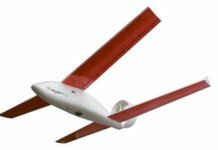The Electronic Privacy Information Center’s (EPIC) lawsuit against the Federal Aviation Administration (FAA) regarding the agency’s lack of privacy safeguards for commercial drones has been dismissed in federal court.
The decision, filed with the U.S. Court of Appeals for the D.C. Circuit on May 10, states, “Petitioner Electronic Privacy Information Center (EPIC) seeks review of the decision of the Federal Aviation Administration (FAA) not to promulgate certain regulations. EPIC challenges both the FAA’s dismissal of its petition for rulemaking and the FAA’s omission of privacy provisions in the notice of proposed rulemaking (NPRM). Regarding its first challenge, EPIC is time-barred; on the second, EPIC’s challenge is premature. Accordingly, we dismiss EPIC’s petition for review.”
“The FAA has repeatedly acknowledged the need to address privacy in drone operations but has so far refused to adopt any privacy rules,” explains EPIC, which notes that in 2012, more than 100 other stakeholders joined EPIC to petition the agency for privacy protections.
In November 2014, the court says, the FAA denied the petition in a letter to EPIC, but EPIC waited 125 days after the dismissal – which must be within 60 days – to file a petition for review. However, EPIC claimed that the FAA’s dismissal of the petition became official when the agency’s proposed rules came out in February 2015.
EPIC also said there were “reasonable grounds” to file after 60 days because the FAA’s letter was ambiguous, but the court found “neither argument prevailing.”
“[EPIC] assumed the letter did not finally dismiss its petition; instead, it should have assumed the opposite and filed protectively for judicial review within 60 days,” the court says.
In addition, because the proposed rulemaking “neither marks the consummation of the agency’s decision-making process nor determines rights or obligations or imposes legal consequences, it is unreviewable” – i.e., the rules cannot be challenged until they become final, which is expected to happen later this spring.
However, EPIC said the FAA had already “expressed its intent to omit privacy considerations in its final rule,” the court document states.
EPIC says it now “must wait to challenge” the FAA until the final rules come out.








